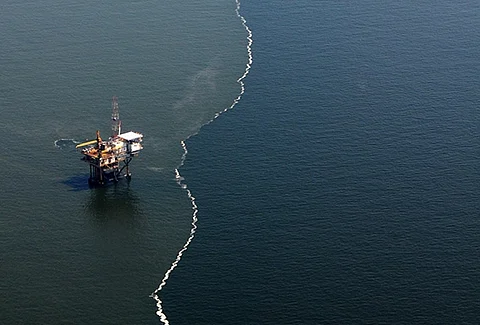

WR Wallingford is one of a team of six research institutions awarded a US$2.8 million grant to further understand how the 2010 Deepwater Horizon oil spill affected the ecology of the Gulf of Mexico.
Prof Eric Chassignet, director of FSU's Centre for Ocean-Atmospheric Studies (COAPS), will lead the team of scientists who will use the grant from the Gulf of Mexico Research Initiative to study the role that microbes play in determining the fate of oil and its impact on marine ecosystems.
The Consortium for Simulation of Oil-Microbial Interactions in the Ocean (CSOMIO) is an interdisciplinary team brought together by the project's Scientific Director at Florida State University (FSU), Dr Steve Morey.
Consisting of experts in physical oceanography, ecology, biology, chemistry and marine sediments, the group will investigate how microbes influence the biodegradation and accumulation of petroleum in the water column and marine sediments of the deep ocean and shelf.
When the 2010 spill occurred, an estimated 492 million litres of oil flowed into the Gulf of Mexico from a damaged well below the Deepwater Horizon platform.
Scientists and emergency personnel scrambled to predict where the released oil would go and how it would affect the circulation, ecology and biogeochemistry of the Gulf.
Florida State University has been studying the area to understand the Gulf of Mexico circulation, ecology, biogeochemistry, and how the spill affected marine life.
"One of the key issues is to understand how oil is transported through the waters, and the deep ocean and shelf, and this requires understanding of how oil interacts with the natural process of flocculation – that is, the clumping together of the most mobile fine sediment particles or 'flocs' – and, in particular, the rate at which these flocs settle to the seabed", said Prof Andrew Manning from HR Wallingford. "In order to develop numerical models of how oil affects this fine sediment transport, it is vitally important to understand more about the flocculation process itself, including its sensitivity to turbulence, particle concentration, floc size and the role of organic content."
HR Wallingford will be measuring the properties of natural and oil-affected floc in situ using a unique floc camera system known as the LabSFLOC system.
The team of research institutions also includes Texas A&M University, the University of Delaware, the University of Maryland and the Virginia Institute of Marine Science.
Scientists from the six institutions will use recent model developments, and results from field- and laboratory-based microbial and sediment studies, to develop simulations to investigate the impacts of potential future oil spills under different scenarios and conditions (such as temperatures, oxygen levels, particulate matters and transport).
"It is critical to have the ability to predict the eventual fate of oil and its impact on ecosystems because toxic oil constituents pose unknown threats to organisms, many of which are harvested in the Gulf for human consumption", Prof Chassignet said. "There's also a greater likelihood of large spills in the future due to oil and gas extraction activities taking place over the shelf and increasingly in deep water."
